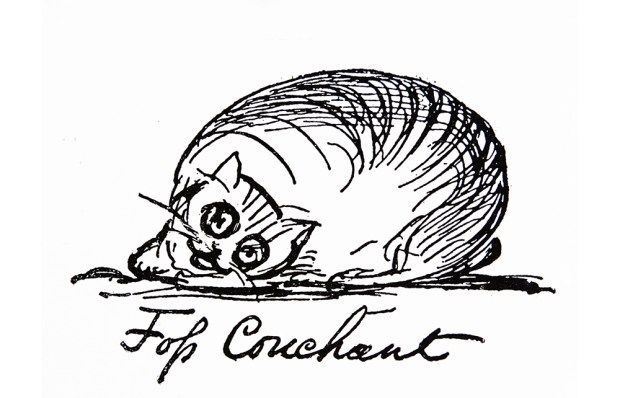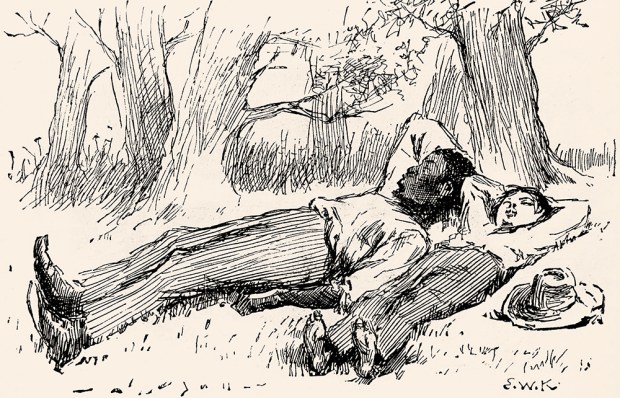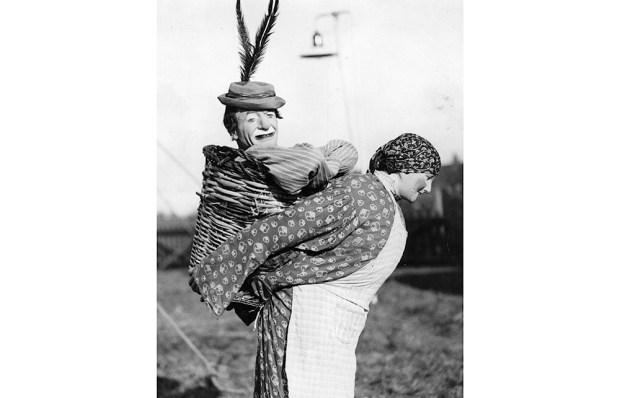The title alludes to Jonathan Meades’s first collection of criticism, Peter Knows What Dick Likes, and to the album by Peter Cook and Dudley Moore in their scabrous personae of Derek and Clive. Meades explains the title in his introduction: ‘It’s akin to “Two-Hour Dry Cleaners” where the operative, out of her head on perchloroethylene, tells you that’s just the name of the shop and it’ll be ready a week Tuesday.’ This does not exactly clear matters up but at least I found it funny.
And there is much to find funny here. A critic or essayist who is incapable of humour should be discarded. That said, bear in mind Meades’s humour, like that of Derek and Clive, is often not for the squeamish. If you think eating cats and dogs is not and never can be funny then avoid his second essay on Brussels and his one called ‘Pedigree Chumps’, on Bill Wiggins’s Dog Meat (Consumption) (Offences) Bill 2017-19: ‘The Bill… is not, despite its name, intended to prevent humans from stealing and eating meat intended for their pet dog.’ He calls Bill’s Bill’s supporters ‘the Bonio Bunch’, among other things, and has this to say about Daniel Kawczynski:
Does the left part of his brain know what the right is up to? His enthusiasms are, evidently, dogs, along with his newfound homosexuality and Saudi Arabia. An awkward trio, to say the least.
As might be inferred from this, one of Meades’s targets is easy populism; as he reminds us more than once, the mob voted to save Barabbas. (Not that he has much time for any religions, describing the Bible, the Quran and the Bhagavad-Gita as ‘palpable drivel’.) I suppose I had better insert some trigger warnings for readers. If you supported Brexit, watch out, on p. 372, for the sentence beginning: ‘The millions of morons who voted for the freedom of indigence and the sovereignty of chaos …’ Rod Liddle and his fans might also want to avert their eyes from page 246 (‘… proffering this moronic gem…’); and our Prime Minister may judge himself the target of some quite considered, and in certain cases spectacular, invective on pp. 60, 377, 525, 681, 711-18, 728, 731-2, 738-9, and 740-3. I think it only fair to let you know.
But it is not all about the bashing. (And don’t imagine that Meades is a leftie. If he is, he keeps very quiet about it. I would venture instead that he finds the very idea of political affiliation barbaric.) Well, quite a lot of it is about the bashing, but the idea generally is not to offend, although he’s pretty relaxed about that too, so much as to educate. And he has a gifted touch for dragging up the interesting historical fact, my favourite being: ‘It is worth noting that when Sir Nigel Gresley’s sublime A4 Pacific Mallard broke the world speed record for a steam engine in 1938, every other developed country had long since abandoned steam locomotion.’ This is the typical Meades factoid, containing (a) an appreciation of beauty (b) interest in its own right and (c) a subversion of the stories we like to tell ourselves. As he says in an interview with Pippa Tregaskis included here: ‘The point, in so far as there is a point, is to show a country that we think we know in a different light.’ (They’re actually talking about his programme Jonathan Meades on France, but the point still holds.)
The book is divided into 27 sections, from ‘Art’ to ‘Writers’. Some of the pieces in one section could happily have gone into another; the divisions are not arbitrary, but convenient. As the pieces date from the late 1980s to 2019, there are frequent repetitions: Meades likes certain tropes, and doesn’t seem to have changed his mind much over the years. But as his mind is better stocked than almost anyone else’s, this is not a problem. It is also nice to see that his writing has not deteriorated over the years. If anything, it has got better.
One of the things that makes Meades such a useful and important critic and commentator is that he quite clearly doesn’t give a damn what you think of him. But that is only half of the story: for, in a way, he is very much on the reader’s side, bringing his full wit to bear on every single thing he writes. There is not a sentence here that is not armoured with intelligence, and very few, if any, that are not, in their way, a delight to read. Le style c’est l’homme. I should add that this is a very handsomely produced book, insofar as its proofreading and indexing go. That is quite the feat to sustain over nearly 1,000 pages, and the only mistake I found was a single palate/palette confusion, and I cannot imagine how that got in there.
Got something to add? Join the discussion and comment below.
Get 10 issues for just $10
Subscribe to The Spectator Australia today for the next 10 magazine issues, plus full online access, for just $10.
You might disagree with half of it, but you’ll enjoy reading all of it. Try your first month for free, then just $2 a week for the remainder of your first year.














Comments
Don't miss out
Join the conversation with other Spectator Australia readers. Subscribe to leave a comment.
SUBSCRIBEAlready a subscriber? Log in